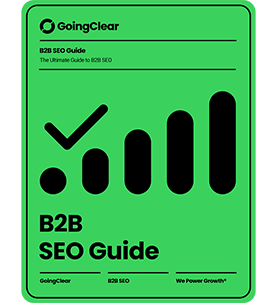What Are the Key Differences Between Lead Generation and Digital Marketing?

One of the challenges of modern marketing is that things often grow and evolve at breakneck speed that the nuances and meanings of certain marketing practices, techniques, and strategies get lost in the chaos.
For example, you’ve probably heard that digital marketing and lead generation are two examples of critical marketing processes. You may have even used the two terms interchangeably. However, digital marketing and lead generation are two completely different tactics. In this guide, we get to the bottom of what these terms mean.
What Is Digital Marketing?
Digital marketing is an umbrella term that includes any form of marketing or advertising on some kind of digital channel. That includes marketing on:
- The Internet (Websites, search engines, and social media)
- SMS
- Digital TV and radio
- Mobile devices such as smartphones and tablets
- Digital screens such as in-flight entertainment systems, digital billboards, and movie screens
Due to the pervasiveness of the Internet and digital technology, you could say that any marketing effort today must include a digital aspect. But on a deeper level, digital marketing is also about data—lots of it. In fact, the wealth of data available to digital marketers is what sets it apart from other forms of marketing.
With this information, marketers can measure and quantify the ROI of their marketing efforts. This data also allows them to create better, more relevant messages for their audience based on their consumer habits, content preferences, and unmet needs.
As more and more of our daily activities become digitized, from media consumption and learning to banking and food ordering, small businesses and global conglomerates are spending an increasing amount of time and resources on digital marketing and advertising. According to data from eMarketer, global spending on digital ads will rise to $517.51 billion in 2023, representing a 60 percent share of the global ad market.
But where does lead generation figure into all of this?
What Is Lead Generation?
Lead generation is a specific strategy within the umbrella of digital marketing. It’s focused on creating a process that attracts strangers and prospects to your brand, products, and services, with the goal of converting them into customers.
In many ways, lead generation is both a sales and marketing strategy, as it involves the creation of a sales pipeline or marketing funnel, which, in turn, represents the different stages of the buyer’s journey. There are different ways of looking at this journey, but it’s usually broken down into the following stages:
- Awareness – At this stage, prospects are made aware of your product/service and brand
- Consideration – People are now receptive to your marketing messages (i.e. they have become leads) and may become your customers
- Conversion – Your leads have purchased your product/service
- Loyalty – Your customers have made repeat purchases
What Is a Lead?
A lead is any person who expresses interest (whether tacitly or explicitly) in your product or service. Leads generally learn about your organization through a lead generator, which can include any of the following:
- Blog posts
- Live events
- Social media posts and other online content
- Search engine results
As you can see, lead generators often depend on digital channels, hence its prominence in the world of digital marketing.
Digital Marketing vs. Lead Generation
Lead generation is all about initiating consumer interest in your products and services (i.e. the first two stages of the buyer’s journey). In contrast, digital marketing addresses the entire buyer’s journey.
However, where things get interesting (and confusing) is how many digital marketing techniques can be tweaked to meet your lead generation objectives. Here are a few examples.
Content Marketing
Content marketing should be one of the core ingredients of your lead generation strategy. The idea is simple. According to Demand Gen Report, 96 percent of B2B decision-makers want content from industry thought leaders while 47 percent said they read at least 3 to 5 content pieces before seeking a sales rep.
In other words, content creation offers a way to build thought leadership, which, in turn, makes your brand trustworthy. This is vital as more of today’s buyers conduct their own research before making purchase decisions.
Paid Social Media Posts
Many social media platforms have ad formats specifically designed for lead generation. Facebook, for example, has Facebook Lead Ads, which allows you to collect lead information from users without having them leave Facebook or Instagram (also owned by Facebook). This may not seem like much, but eliminating the need to leave the site or app to move to another page goes a long way towards convincing people to sign up for a newsletter or take advantage of a limited-time offer.
Local Search Engine Optimization
According to WordStream, 72 percent of Internet users who make a local search on search engines visited a store within five miles of their location.
By optimizing your site for these local searches, you can supercharge your lead generation efforts and build a pipeline of qualified prospects that are within your immediate vicinity. Local SEO can be as simple as:
- Claiming your Google My Business listing
- Ensuring your Name, Address, and Phone (NAP) are consistent across your owned properties (e.g. website, social media, online directories like Tripadvisor and Yelp)
- Optimizing your content for local intent and location-based keywords
Targeted Email Marketing
Email marketing may be ‘old school’ as far as digital marketing goes, but it can also be a tremendously powerful lead generation tool. For example, it can be a great way to capture people who are browsing for items on your ecommerce site. By offering these prospects a deal to score a 10 percent discount on their first purchase and requiring them to sign up for your newsletter, you now have a captive audience you can upsell and remarket to.
Over to You
Digital marketing and lead generation are two different things, but they’re not completely unrelated either. Every effective digital marketing campaign that touches on every stage of the marketing funnel must include a solid lead generation strategy, ensuring that prospects are nurtured into becoming customers.
Lead generation, however, is both a science and an art. Talk to the digital marketing specialists at GoingClear to formulate a lead generation strategy specifically designed for your company’s needs.

